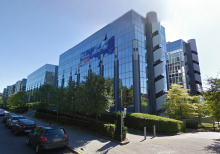Login Status
-
Free text
UPCOMING EVENTS:
 From August 18 to October 11, 2026; submissions due February 19.
From August 18 to October 11, 2026; submissions due February 19.FILE – Electronic Language International Festival is now accepting project submissions and invites artists, researchers, creators, and developers to participate in its next edition. An international reference in the fields of art, technology, and innovation, FILE will take place in … Continue reading →
 Wrocław University of Environmental and Life Sciences, 4th of Match 2026
Wrocław University of Environmental and Life Sciences, 4th of Match 2026The international conference “Cross-border cooperation in the era of challenges and transformation – space, energy, climate, culture” will be held on 4 March 2026 at the Wrocław University of Environmental and Life Sciences, in Wrocław, Poland. The conference will explore key issues facing border regions, from … Continue reading →
Topic: digital archive
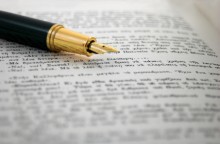
The article “Digital curation and quality standards for memory institutions: PREFORMA research project” has just been published in the Archive Science Journal – S.I. Digital Curation – and it is available as ‘Online First’ on SpringerLink. Continue reading
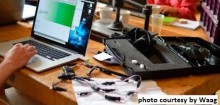
Europeana Space is establishing a Technical Space as a framework for storing, accessing and processing cultural heritage content and metadata. Based upon IPR licensing, curators, scholars, professional users and developers will be able to search for and manage resources within … Continue reading
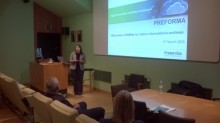
On March 6th 2015, the six suppliers who are currently working in the first design phase of the PREFORMA PCP project presented to the PREFORMA Consortium and to the external experts of the Evaluation Committee the results of their work. Stay tuned on our Open Source Portal! Continue reading
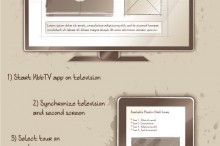
On 25-26th of February 2015, the EuropeanaTV team organized a workshop at Rundfunk Berlin-Brandenburg (RBB) in Potsdam to work out a SmartTV app. It had to use RBB content about the Berlin wall together with related materials from Europeana. This workshop is part of the work realized in the TV pilot of Europeana Space project. Continue reading
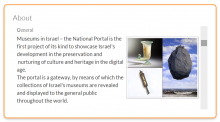
it is a portal for the people all over Israel and the globe. It enables Israel to be a leading member of the global community for digital culture and heritage, integrated with Europeana and functions a common platform for other cultural branches once they are moving toward the digital era. Continue reading
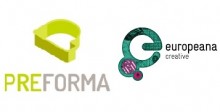
A Memorandum of Understanding has been signed between the two projects to enable and promote greater re-use of cultural heritage resources by creative industries, starting from the open source tools developed in the framework of PREFORMA PCP and of Europeana Creative. Continue reading

The International Conference on Digital Preservation (iPRES) is a series of conferences on digital preservation. Since 2004, iPRES conferences have been held on three continents. iPRES 2015 will be held in Chapel Hill, North Carolina, USA on November 2-6, 2015. It will be held at the William and Ida Friday Center for Continuing Education. Continue reading
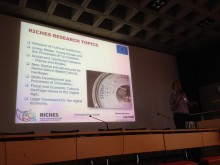
Neil Forbes, RICHES Project Coordinator, presented the project during the Final Conference of Europeana Photography, which took place in Leuven on 29-30 January 2015, hosted by CS Digital (KU Leuven) and the Lieven Gevaert Centre for Photography in Campus Library Arenberg. Continue reading
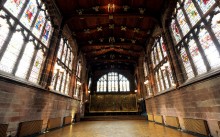
Speakers: Sarah Whatley (Coventry University, project’s coordinator), Charlotte Waelde (University of Exeter), Prodromos Tsiavos (Postscriptum), Frederik Temmermans, Peter Schelkens, Ann Dooms (iMinds). A workshop focused on IPR that considers content rights in a non traditional way. Rather than only focussing on different … Continue reading


